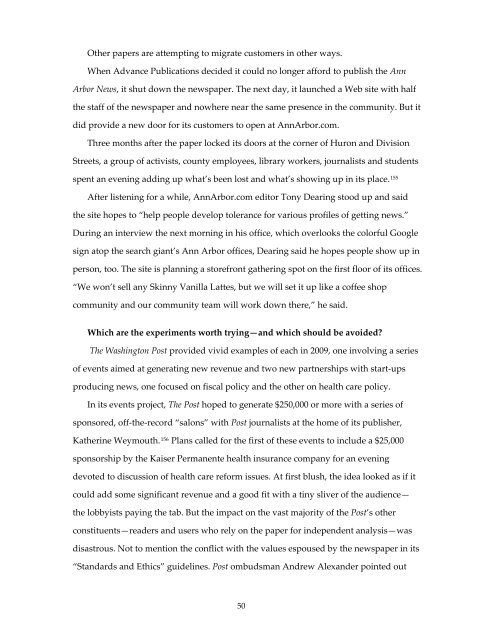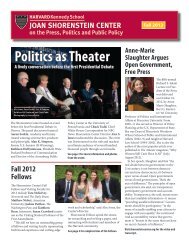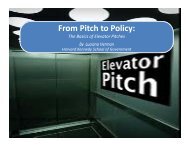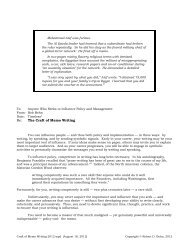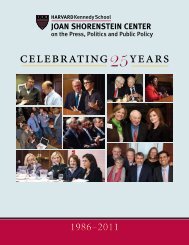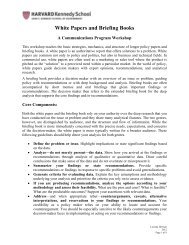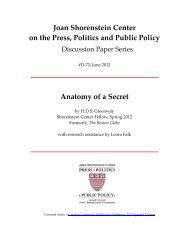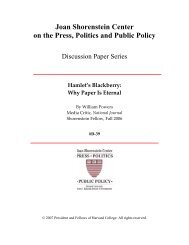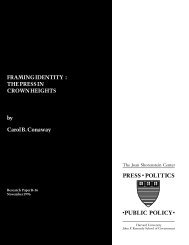A User-First Framework for Sustaining Local News - Harvard ...
A User-First Framework for Sustaining Local News - Harvard ...
A User-First Framework for Sustaining Local News - Harvard ...
Create successful ePaper yourself
Turn your PDF publications into a flip-book with our unique Google optimized e-Paper software.
Other papers are attempting to migrate customers in other ways.<br />
When Advance Publications decided it could no longer af<strong>for</strong>d to publish the Ann<br />
Arbor <strong>News</strong>, it shut down the newspaper. The next day, it launched a Web site with half<br />
the staff of the newspaper and nowhere near the same presence in the community. But it<br />
did provide a new door <strong>for</strong> its customers to open at AnnArbor.com.<br />
Three months after the paper locked its doors at the corner of Huron and Division<br />
Streets, a group of activists, county employees, library workers, journalists and students<br />
spent an evening adding up what’s been lost and what’s showing up in its place. 155<br />
After listening <strong>for</strong> a while, AnnArbor.com editor Tony Dearing stood up and said<br />
the site hopes to “help people develop tolerance <strong>for</strong> various profiles of getting news.”<br />
During an interview the next morning in his office, which overlooks the colorful Google<br />
sign atop the search giant’s Ann Arbor offices, Dearing said he hopes people show up in<br />
person, too. The site is planning a storefront gathering spot on the first floor of its offices.<br />
“We won’t sell any Skinny Vanilla Lattes, but we will set it up like a coffee shop<br />
community and our community team will work down there,” he said.<br />
Which are the experiments worth trying—and which should be avoided?<br />
The Washington Post provided vivid examples of each in 2009, one involving a series<br />
of events aimed at generating new revenue and two new partnerships with start‐ups<br />
producing news, one focused on fiscal policy and the other on health care policy.<br />
In its events project, The Post hoped to generate $250,000 or more with a series of<br />
sponsored, off‐the‐record “salons” with Post journalists at the home of its publisher,<br />
Katherine Weymouth. 156 Plans called <strong>for</strong> the first of these events to include a $25,000<br />
sponsorship by the Kaiser Permanente health insurance company <strong>for</strong> an evening<br />
devoted to discussion of health care re<strong>for</strong>m issues. At first blush, the idea looked as if it<br />
could add some significant revenue and a good fit with a tiny sliver of the audience—<br />
the lobbyists paying the tab. But the impact on the vast majority of the Post’s other<br />
constituents—readers and users who rely on the paper <strong>for</strong> independent analysis—was<br />
disastrous. Not to mention the conflict with the values espoused by the newspaper in its<br />
“Standards and Ethics” guidelines. Post ombudsman Andrew Alexander pointed out<br />
50


